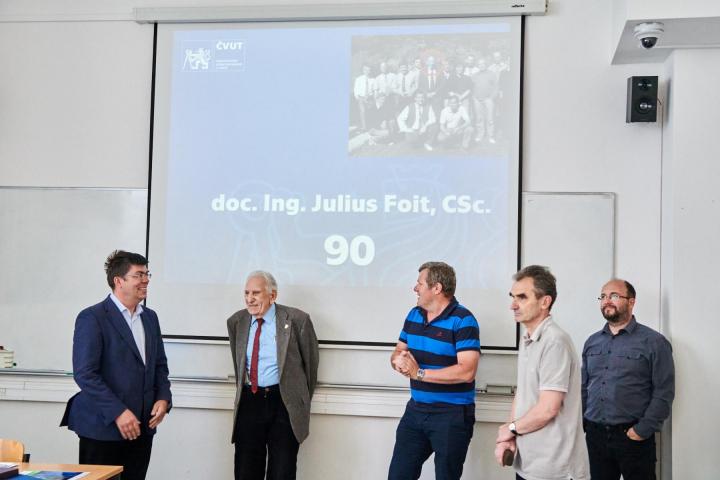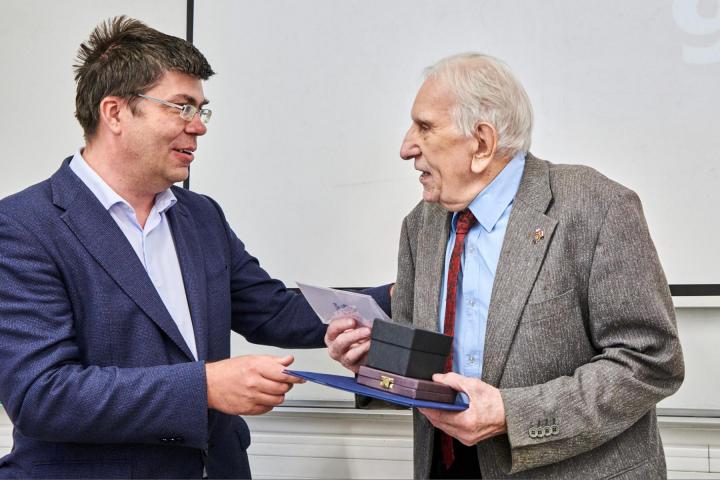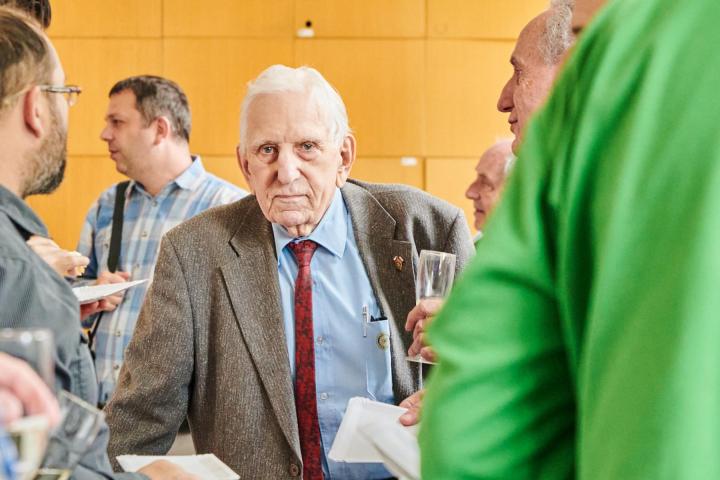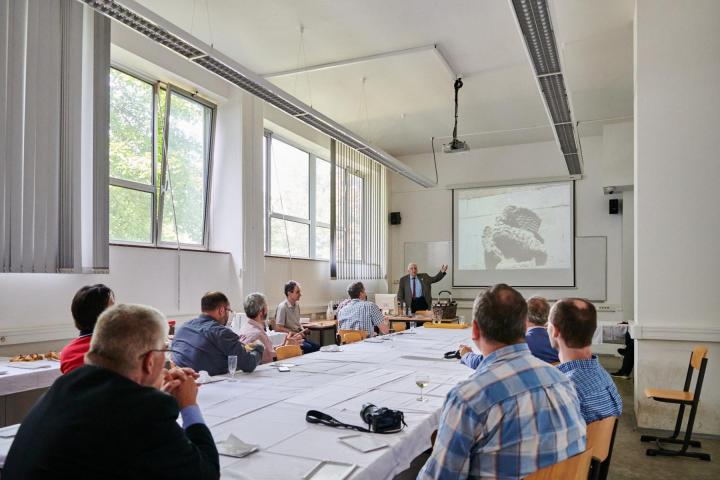
"The medal is intended for the greatest personalities of our faculty for their scientific, professional and other activities at the faculty and for its development," said Prof. Petr Páta, Dean of the Faculty of Electrical Engineering. "In case of doc. Foit, these two conditions are combined. He has contributed to both the development and the very existence of the faculty," Prof. Páta explained his decision to award the prize.
At the festive meeting, it was also stated - almost unbelievable from today's point of view - that doc. Foit visited these places before the Faculty of Electrical Engineering was even established. "I used to ride on one of the carousels at the Matejska fair as a little boy, exactly in these places where we are standing right now (the Department of Microelectronics in Technical Street in Prague 6 - editor's note). " recalled the jubilarian.
The Faculty was founded on 1 September 1950 and the young Julius Foit joined the Faculty on the same day as one of its first students. From that moment on, he spent only one year away from the faculty. The so-called "placement system" introduced by the communists took him to Tesla Hloubětín to the Ořechovka workplace. In one year he and his colleagues constructed the first centimetre radar east of the Elbe. And during tests at a firing range in northern Poland, they celebrated an overwhelming victory in the field of anti-aircraft weapons. Subsequently, Julius Foit enrolled in an aspirantry (thesis for the docent title) to escape the placement. He has been a member of the faculty ever since - and as he says, he is "one body, one soul" with it.
As a teacher and examiner, literally thousands of students have passed through his hands. "In every electrical plant I visit, someone approaches me saying I taught them," he adds with enthusiasm.
It is well known among students for using the British model of examination - the first part of the exam is written, detailed, and standardly marked. Only after its completion does the oral part follow. The best students (including several current professors at the faculty) usually get a B. The subject of Microelectronics is simply very demanding field, as presented by doc. Foit. "I am very strict, but fair," says the jubilant.
The current head of the Department of Microelectronics, Prof. Pavel Hazdra, adds, "For current PhD students, he is an unrepeatable and deep well of experience. It is unbelievable - and I am very glad for it - that he can still pass on his experience at the age of ninety. He is still actively teaching international students and has helped a number of people to develop English texts and publications."
The informal conclusion of the celebration belonged to the engaging and at times almost unimaginable story of the associate professor about his internships in Iraq, Nigeria and Zimbabwe. Over a glass of champagne, he toasted, "I would like to wish the Faculty to continue to function as successfully as it has done so far!" We believe that this wish carries a lot of weight, as the docent´s grandfather founded Comenius University in Bratislava in 1919.
Doc. Foit also remembered Prof. Trnka himself: "The only exam that I did not pass the first time at the faculty was the one with Professor Trnka." And literally as a coincidence of fate it seems that doc. Foit once worked as an electrical engineering student for Professor Trnka as a auxuliary research staff.
* Professor Zdeněk Trnka was one of the most important pre-normalization personalities of the Faculty of Electrical Engineering. The so-called Trnka Medal is one of the most valuable awards given by the faculty for exceptional merit. It has been awarded since 2001.



